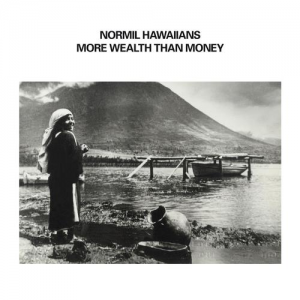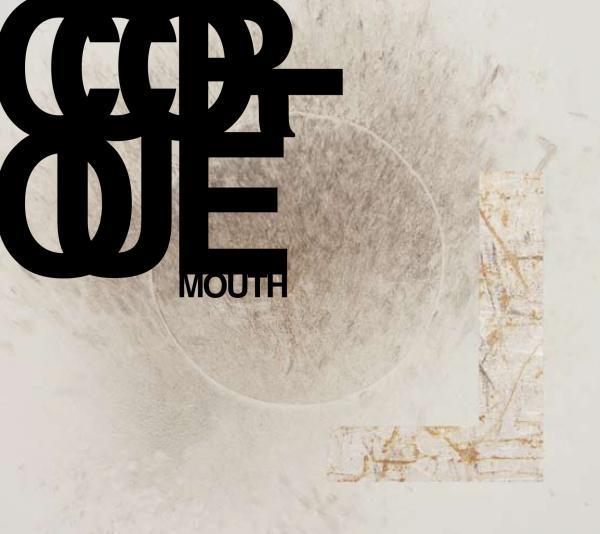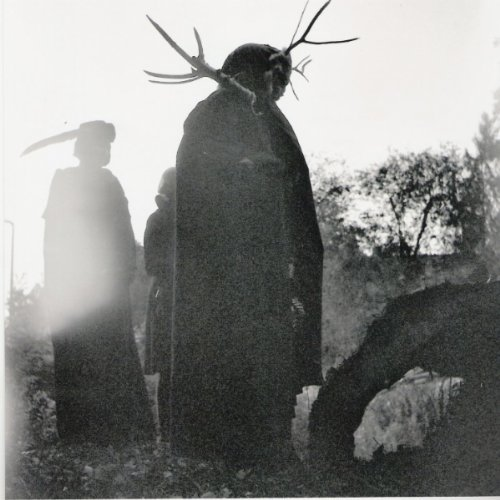 The good people at Upset the Rhythm have very wisely taken the opportunity, on the strength of their return to play live dates, to reissue the first album Normil Hawaiians recorded and released back in 1982; and what an absolute gem of post-post-punk pioneering spirit it truly is. Originally released on the wonderfully diverse Illuminated Records, they would have shared the label with the adventurous likes of 400 Blows, 23 Skidoo, Die Haut, Portion Control, DAF and many others. More Wealth Than Money is the tale of a band in search of a fresh start in music, and a desire to escape from the grim rat-race of the city and to find fresh inspiration elsewhere.
The good people at Upset the Rhythm have very wisely taken the opportunity, on the strength of their return to play live dates, to reissue the first album Normil Hawaiians recorded and released back in 1982; and what an absolute gem of post-post-punk pioneering spirit it truly is. Originally released on the wonderfully diverse Illuminated Records, they would have shared the label with the adventurous likes of 400 Blows, 23 Skidoo, Die Haut, Portion Control, DAF and many others. More Wealth Than Money is the tale of a band in search of a fresh start in music, and a desire to escape from the grim rat-race of the city and to find fresh inspiration elsewhere.
The reissue has, by some extraordinary feat of science, managed to squeeze over two and a half hours of music onto two CDs; the original album, which was released as a double LP, is on one disc and some early recordings, demos of album material and a few other exquisite experiments are squeezed onto disc two. I kind of wish I discovered this album years ago, as for something this good to be so obscure is a real shame, and clearly UTR feel the same. Let’s hope people are listening!
The original album is a long affair and so incredibly varied that it becomes a compelling listen, just due to the fact that you have no idea where the next track might take you. There are the odd touchstones where there are echoes of contemporaries; there is an element of Iceland-era Fall on “An Old Standard” and echoes of The Cure in some of the guitar sounds on “British Warm”, but really this is co-incidental. I mean, this is 1982 and anyone worth their salt was striving to escape from the slavish sound of the new romantic synth bands. Normil Hawaiians couldn’t have managed this any better if they had set up a studio on Mars. The opening track “Red Harvest” has the kind of slashing guitar and chugging bass that you might expect but the meaty, vibrant toms and a flute that appears at the end set it on a different course. The vocals are angry and spiky and delivered in that classic can’t-sing drawl, but it is follow-up “British Warm” that really allows the band to release the anchor and float upward. There is a drifting flute and shaker-led intro that propels itself into a dramatic burst of acoustic guitar, and from there the song just builds and builds. Over ten minutes, we see the images of war from a soldier’s perspective told over a constantly evolving musical landscape; choral vocals enhance the dry spoken word images with wah guitar and strips of synthy strings accompanying the tale as the backing becomes more and more strung out.There is a sense of fun at play on the album as well, and also that feeling that anything goes. The cut-up voice loop experiments of “Homeless” and “The Story Of A Sunken Fence” highlight the sense of rife experimentation. “Yellow Rain” — of which there are three versions spread across the release — takes things down a gear and under sheets of Klaus Schulze-like synth and a soporific bass-line there is mention in a disaffected vocal delivery of Agent Orange and the havoc it unleashed.
There are politics at work here, affecting the lyrics; and again, 1982 was a difficult year. Escaping from Thatcher‘s London down to the wilds of Wales must have seems idyllic, but still the pervading sense in the country was that of unease and that does filter into the music a little. However, their homage to NEU!, “New Standard”, wipes everything clean with its insistent bass and bright trebley guitar. Another album that has a similar feeling of adventure to this is PiL‘s Metal Box, and although there is no real musical link between the two (except maybe the singer barks like John Lydon every now and again), it is the sheer scale and exploratory vibe that draws the comparison. The album ends with two more ten-minute tracks. The electric cello of the band’s friend Klaus Haare takes centre-stage on “Left Alone With Her Pipe” and sounds as though it is crying. The synthscape that gently supports the cello is augmented by a tabla-led rhythm and the whole thing turns into a dreamscape with enough cello scrapings to keep the listener awake and interested. The album bows out on the sublime and drifting “Travelling West”, which with a bit of drum and the odd shard of guitar just make you wish that travelling west really could be this utopian. Perhaps this track is where the entire experience of spending time at Foel Studios blossoms most hazily.To be honest, the album in itself is enough to exist on, but with an extra eighty minutes of music at your disposal (in CD form), the sketches are well worth a look. The first four tracks are from an earlier incarnation of the band and the only track that appears on the actual album is “Yellow Rain”, which here is shorter. These tracks are interesting and you can see the start of the adventure, but are a little close to other post-punk sounds with a little McGeoch guitar here and some righteous stress there to stand out too much. “Yellow Rain”still sounds great though.
The next five tracks are demos for the album before heading for Wales. The addition of a proto-Spacemen 3 bass-line to “British Warm” adds some early intensity and takes the song in a different direction. You can hear the basic framework of the other songs, but each has additional details and the variety of those details make them well worthy of inclusion. You imagine that every take the band made of each track would have differed from the previous, and that lack of formula is one of the band’s key strengths.The final three tracks are probably the gems. Two stem from the Foel sessions, but involve sundry other people who were there at the time. The funk party atmosphere of “This Brush Sweeps Clean” is enlivened by the addition of female backing vocals, which add a delicious colour to the already fantastic atmosphere — and therefore is almost at odds with the shadowy rainforest dub experiment of “Azapo”, with its washes of gauzy synth and reverie breaking cowbell. The bonus disc ends with the first Foel take of “Travelling West”, here strung out for twenty hypnotic, fathomless, gorgeous minutes. Clearly it was too long for the album, but boy, was it worth hanging onto it.
The albums that come across the reviewers’ doorsteps invariably take us on a journey of new discovery, but then sometimes, something comes along that you didn’t realise you needed to fill a void in your musical universe. It may have taken thirty-five years for this album to arrive for me, but I couldn’t be more pleased. Good luck to the band in their renewed efforts, playing again in 2018; and thanks to UTR for making this seminal recording available again.-Mr Olivetti-



